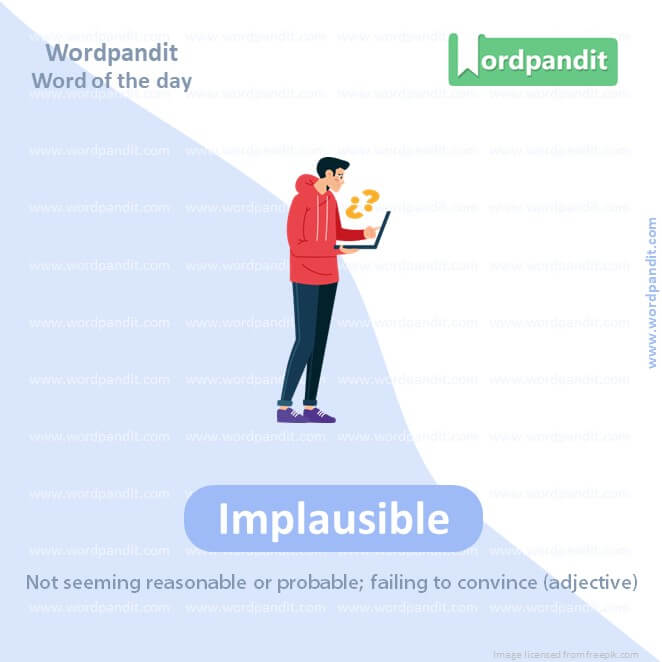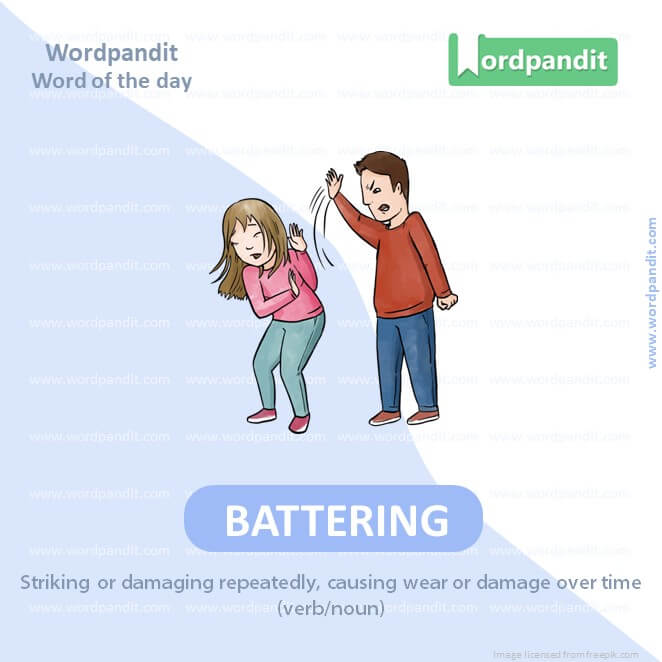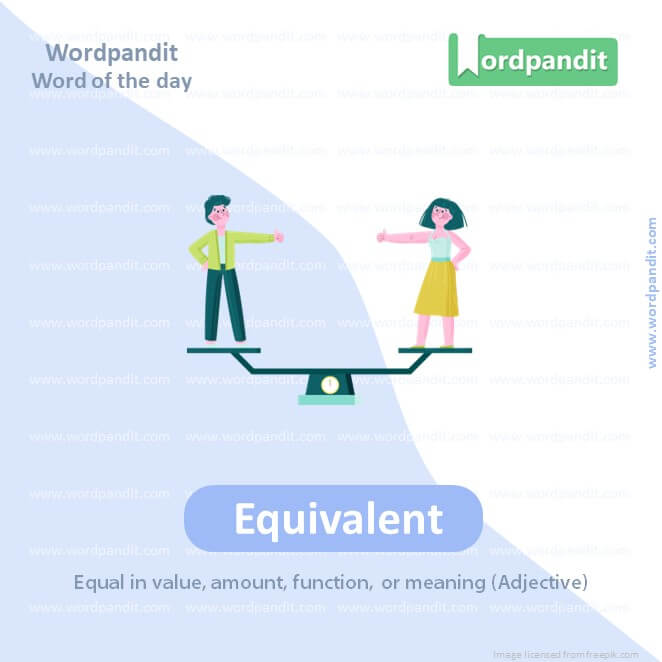Daily Vocabulary Words: List of Daily Used Words in Leading International Newspapers
Hi there. Welcome to this special section @ Wordpandit.
Our endeavour here is very simple: to highlight important daily vocabulary words, which you would come across in leading newspapers in the country. We have included the following newspapers in our selection:
• The New York Times
• The Washington Post
• Scientific American
• BBC
• The Guardian
• Psychology Today
• Wall Street Journal
• The Economist
We are putting in extensive work for developing your vocabulary. All you have got to do is be regular with this section and check out this post on a daily basis. This is your repository of words that are commonly used and essentially, we are posting a list of daily used words. Hence, this has significant practical application as it teaches you words that are used commonly in leading publications mentioned above.
Visit the website daily to learn words from leading international newspapers.
WORD-1: GARNERED
CONTEXT: the Israeli drone strike that killed seven people who worked for his non-profit World Central Kitchen (WCK) in Gaza earlier this month, Andrés’s criticism of Israel has carried more weight and garnered more attention than any statement from a Spanish or other European political figure could.
SOURCE: Guardian
EXPLANATORY PARAGRAPH: Imagine gathering ripe fruits from a tree. When you collect something like praise, attention, or support, especially over time or through effort, it’s called “garnered.” It’s like gathering or accumulating something valuable.
MEANING: Gathered or collected, especially through effort or over time (verb).
PRONUNCIATION: GAR-nurd
SYNONYMS: collected, accumulated, gathered, amassed, garnered
USAGE EXAMPLES:
1. The artist garnered critical acclaim for her latest exhibition.
2. The team’s hard work garnered them a victory in the championship.
3. She garnered support from various organizations for her charity initiative.
4. His efforts garnered him recognition as a leader in the field.
WORD-2: MESMERIZING
CONTEXT: I met him years ago when he was giving a talk to a small group of fellows at Harvard, where he also taught a masterclass about science and cooking and it was mesmerizing to listen to him share his experiences of growing up in Asturias, then working as a cook for the navy on a transatlantic ship, before building a gastronomic empire in the US and launching WCK to feed people in disaster zones.
SOURCE: Guardian
EXPLANATORY PARAGRAPH: Imagine watching a performance that’s so captivating, it feels like you’re under a spell. That captivating and enchanting quality is called “mesmerizing.” It’s like being entranced or fascinated by something beautiful or impressive.
MEANING: Captivating or enchanting, holding one’s attention in a spellbinding manner (adjective).
PRONUNCIATION: MEZ-muh-rahy-zing
SYNONYMS: captivating, enchanting, spellbinding, enthralling, fascinating
USAGE EXAMPLES:
1. The sunset over the ocean was truly mesmerizing.
2. Her storytelling skills were mesmerizing; everyone was glued to her words.
3. The musician’s performance was so mesmerizing that the audience demanded an encore.
4. The artwork had a mesmerizing effect on those who viewed it.

WORD-3: TANGIBLE
CONTEXT: His reaction in interviews and a New York Times opinion piece, prompted a speedier and more tangible reaction than months of street protests throughout the world or any of the UN resolutions so far have managed.
SOURCE: Guardian
EXPLANATORY PARAGRAPH: Imagine holding something in your hands that you can feel and touch. That quality of being real, capable of being touched, or having actual existence is called “tangible.” It’s like something you can physically interact with.
MEANING: Perceptible by touch; clear and definite; real.
PRONUNCIATION: TAN-juh-buhl
SYNONYMS: real, actual, palpable, concrete, substantial
USAGE EXAMPLES:
1. The results of their efforts were tangible improvements in the neighborhood.
2. She wanted tangible evidence before believing the extraordinary claims.
3. The company’s success was evident in the tangible increase in profits.
4. Tangible rewards motivate employees to work harder.

WORD-4: ELICITED
CONTEXT: Humanising the victims elicited outrage and empathy.
SOURCE: Guardian
EXPLANATORY PARAGRAPH: Imagine asking a question that prompts a response or reaction. When something, like a reaction or response, is drawn out or brought forth, especially through questions, actions, or stimuli, it’s called “elicited.” It’s like extracting or bringing something to the surface.
MEANING: Draw out (a reaction, answer, or fa ct) from someone (verb)
PRONUNCIATION: i-LIS-tid
SYNONYMS: drew out, provoked, prompted, evoked, brought forth
USAGE EXAMPLES:
1. Her artwork elicited mixed reactions from the critics.
2. The teacher’s question elicited thoughtful responses from the students.
3. The speech elicited a standing ovation from the audience.
4. His actions elicited sympathy from those who witnessed the event.

WORD-5: IMPLAUSIBLE
CONTEXT: To suggest that a Spanish chef could change the course of history may sound implausible. But whatever you think of Andrés, he has managed to move the dial with the White House where diplomacy seems to have failed.
SOURCE: Guardian
EXPLANATORY PARAGRAPH: Imagine hearing a story or explanation that seems highly unlikely or difficult to believe. That quality of being unlikely, unbelievable, or not credible is called “implausible.” It’s like something that’s hard to accept as true or possible.
MEANING: Not seeming reasonable or probable; failing to convince (adjective).
PRONUNCIATION: im-PLAW-zuh-buhl
SYNONYMS: unlikely, improbable, incredible, far-fetched, dubious
USAGE EXAMPLES:
1. The suspect’s alibi seemed implausible to the detectives.
2. The movie’s plot was criticized for being implausible and unrealistic.
3. Her excuse for being late was deemed implausible by her boss.
4. The theory presented in the book was intriguing but ultimately implausible.

WORD-6: BATTERING
CONTEXT: “one of America’s least discussed but most common crimes: that of wife battering”.
SOURCE: Guardian
EXPLANATORY PARAGRAPH: Imagine repeatedly hitting something, causing damage or wear over time. That action of striking or damaging repeatedly, especially over a period, is called “battering.” It’s like the effects of continuous impact or force.
MEANING: Striking or damaging repeatedly, causing wear or damage over time (verb/noun).
PRONUNCIATION: BAT-uh-ring
SYNONYMS: striking, hitting, pounding, pummeling, damaging
USAGE EXAMPLES:
1. The storm’s strong winds were battering the coastline.
2. Years of neglect had left the furniture battered and worn.
3. The boxer’s opponent was left battered and bruised after the match.
4. The battering ram was used to breach the castle’s gates.
WORD-7: COWERING
CONTEXT: It was the ninth time when they found her cowering in bushes, with a split lip, swellings, bruises, and red marks and fingerprints on her neck – suggesting she had been choked – and when she begged them to take in her husband, saying she feared for her life.
SOURCE: Guardian
EXPLANATORY PARAGRAPH: Imagine a scared animal or person shrinking back in fear. That action of crouching or moving backward defensively in fear or apprehension is called “cowering.” It’s like shrinking away from danger or threats.
MEANING: Crouching or moving backward defensively in fear or apprehension (verb).
PRONUNCIATION: KOH-er-ing
SYNONYMS: shrinking, cringing, trembling, quivering, recoiling
USAGE EXAMPLES:
1. The child was cowering behind his mother during the thunderstorm.
2. The cat was cowering under the bed after hearing loud noises.
3. His intimidating presence had people cowering in fear.
4. The soldier was found cowering in a bunker during the attack.

WORD-8: EQUIVALENT
CONTEXT: the top 10 shows watched by white Americans and the equivalent list for Black viewers did not have a single programme in common.
SOURCE: Guardian
EXPLANATORY PARAGRAPH: Imagine having two different things that are equal in value, amount, or function. When two things are equal or interchangeable in some way, they are called “equivalent.” It’s like having two sides of a balance scale that balance each other.
MEANING: Equal in value, amount, function, or meaning (Adjective).
PRONUNCIATION: ee-kwiv-uh-luhnt
SYNONYMS: equal, identical, comparable, commensurate, corresponding
USAGE EXAMPLES (continued):
1. The scientist discovered a chemical compound that was the equivalent of penicillin in effectiveness.
2. One US dollar is roughly equivalent to seventy Indian rupees.
3. The two paintings were not identical but were considered equivalent in artistic value.
4. The teacher explained that silence can be the equivalent of agreement in some situations.
WORD-9: AXIOMATICALLY
CONTEXT: The Enhanced Games would be a turbocharged version, showcasing as it does so much of the wrongness of the age – from the belief that if something makes good #content it is axiomatically freed from the shackles of morality, to a grim tech libertarian bankrolling it all, to a decidedly non-libertarian hypersensitivity about language.
SOURCE: Guardian
EXPLANATORY PARAGRAPH: Imagine a statement or principle that is universally accepted as true without needing proof. That type of statement or principle, considered self-evident or unquestionably true, is called “axiomatically.” It’s like a fundamental truth that doesn’t require further explanation.
MEANING: In a way that is self-evidently or unquestionably true; based on an accepted principle (adverb).
PRONUNCIATION: ak-see-uh-mat-i-klee
SYNONYMS: unquestionably, self-evidently, indisputably, undeniably, inevitably
USAGE EXAMPLES:
1. Axiomatically, all living things require water to survive.
2. It is axiomatically true that honesty is the best policy.
3. The theorem was axiomatically accepted by mathematicians worldwide.
4. Axiomatically, the sun rises in the east and sets in the west.
WORD-10: ABETTED
CONTEXT: Governing bodies have aided and abetted this. The International Olympic Committee (IOC) has said of the Enhanced Games.
SOURCE: Guardian
EXPLANATORY PARAGRAPH: Imagine someone encouraging or supporting a wrongdoing or illegal activity. When someone assists, encourages, or supports the commission of a crime or wrongdoing, it’s called “abetting.” It’s like aiding or facilitating improper actions.
MEANING: Assisted, encouraged, or supported, especially in wrongdoing or illegal activity (verb).
PRONUNCIATION: uh-BET-tid
SYNONYMS: assisted, aided, encouraged, supported, facilitated
USAGE EXAMPLES:
1. The accomplice was arrested for abetting the robbery.
2. She was accused of abetting tax evasion by providing false documents.
3. The company’s lax policies abetted corruption among its employees.
4. The law prohibits anyone from abetting criminal activities.
Vocabulary Spelling
In the rich tapestry of language learning, getting the ‘vocabulary spelling’ right forms a significant thread. These spelled words or the arrangement of letters give each word its unique identity. However, understanding ‘vocabulary spelling’ proficiently needs an insightful and strategic approach.
Starting the journey of learning ‘vocabulary spelling’, one must focus on observing patterns. English language words often follow certain spelling rules or patterns. Recognizing these can simplify the learning process, offering a systematic way to appreciate ‘vocabulary spelling’.
The trick to ingraining ‘vocabulary spelling’ effectively lies in the power of repetition. Regularly writing words can help reinforce the spelling in your memory. To boost this, tools like spelling quizzes or flashcards with the word on one side and the spelling on the other can provide an engaging way to practice ‘vocabulary spelling’.
An unconventional yet powerful approach to remember ‘vocabulary spelling’ is by using mnemonic devices. For instance, connecting the word’s spelling with a catchy phrase or rhyming pattern can make recall easier.
Integrating technology with learning ‘vocabulary spelling’ has its unique benefits, too. Apps offer various exercises and tests that not only enhance memory but also make learning fun.
Importantly, the learning of ‘vocabulary spelling’ should be punctuated with regular revisions. This ensures the recalled spelling is correct and cements it in your long-term memory.
In a nutshell, mastering ‘vocabulary spelling’ requires keen observation, regular practice, innovative mnemonic tools, use of technology, and timely revisions. As you follow this comprehensive path, you strengthen your grasp over ‘vocabulary spelling’, paving the way to language proficiency. Remember, every word spelled correctly is a moment of triumph in the enthralling escapade of language learning!







